Most pet parents are willing to do just about anything to ensure that their pet enjoys nutritious food. But the problem is, as veterinarians and researchers learn more about the best ways to feed our pets, many pet owners find it increasingly difficult to understand exactly what their dog needs in food.
Take taurine, for example.
Until a few years ago, the average dog owner probably hadn’t even heard of taurine or taurine supplementation (unless you have a cat – more on that later).
But recently, taurine has been appearing in one article after another regarding canine health and DCM (Dilated Cardiomyopathy) — a serious heart condition that develops in some dogs.
We’ll try to help you understand the taurine issue below and explain why it is something you need to be aware of.
Fair warning: There are a lot of questions about this issue for which we don’t yet have answers. But we are trying to help you understand which questions you should be asking.
Jump down to our list of the best dog foods with taurine.
What Is Taurine & What Is Its Role in Pet Food?

Taurine is an amino acid.
Amino acids are primarily used as the building blocks of proteins. Combine the right amino acids in the right configuration, and you get a protein.
Conversely, when your dog eats proteins, his body breaks them down into their constituent amino acids, which his body can then use.
But taurine is a bit of an oddball. It isn’t used as one of the building blocks of proteins. Instead, it plays a role in the production of bile salts, the regulation of electrolytes, and keeping neurotransmitters in the brain balanced properly.
In the body, taurine is typically concentrated in three places: the brain, retinas, and heart.
Taurine is classified as a non-essential amino acid. This means that, in contrast to essential amino acids, dogs normally make taurine internally – they do not typically need to obtain it from their diet.
This distinguishes dogs from cats, who must obtain taurine from their diet. If cats aren’t provided with dietary taurine, they’ll almost always become blind over time and suffer from other health problems.
However, because dogs typically produce their own taurine, dog foods do not have to include the ingredient. Most dogs seem to remain perfectly healthy without supplemental taurine in their diet.
Nevertheless, for reasons that aren’t yet clear, some dogs fail to produce enough taurine. This can lead to health problems, which may force owners to provide their pet with additional taurine.
Canine Dilated Cardiomyopathy (DCM) & Taurine Deficiency
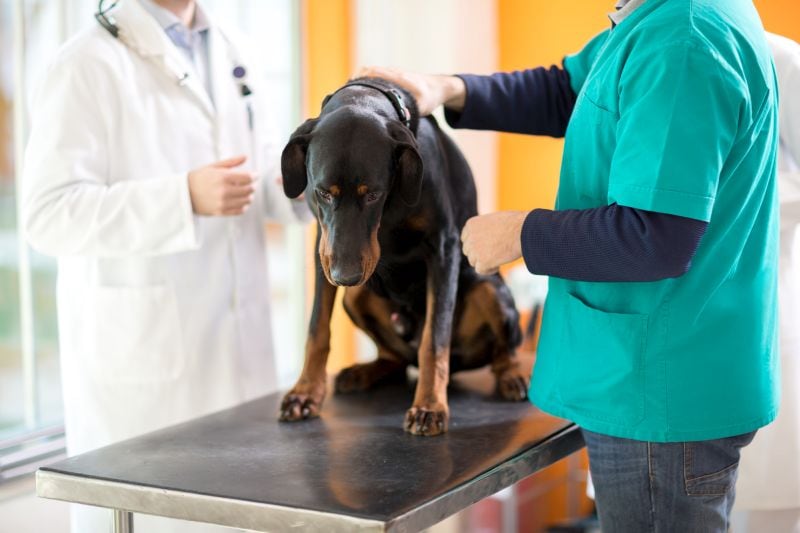
A few different health problems can occur in dogs who exhibit taurine deficiencies, but the most notable issue is dilated cardiomyopathy (DCM).
DCM occurs when the walls of a dog’s heart become thin and weak. This reduces its pumping efficiency, eventually causing blood to flow slower through the heart, leading to congestive heart failure.
This heart condition is treatable, but the intensity of the treatment must often be ramped up over time, as the dog’s heart becomes less efficient.
DCM has been around for a long time – it’s not a new disease. It appears to be an inherited condition in some cases, and some breeds seem predisposed to it.
But in recent years, there appears to have been an uptick in the prevalence of DCM – including in breeds that aren’t typically thought to be at high risk for the disease. And in some (but not all) of these cases, it has been associated with low taurine levels.
Note that a clear cause-and-effect relationship between taurine deficiency and DCM has not been established. They’ve simply been shown to be correlated.
That doesn’t mean we won’t eventually learn that taurine deficiency does lead to DCM, but as of now, we can’t state that confidently.
What Dog Foods Are Associated with DCM and Taurine Deficiencies?
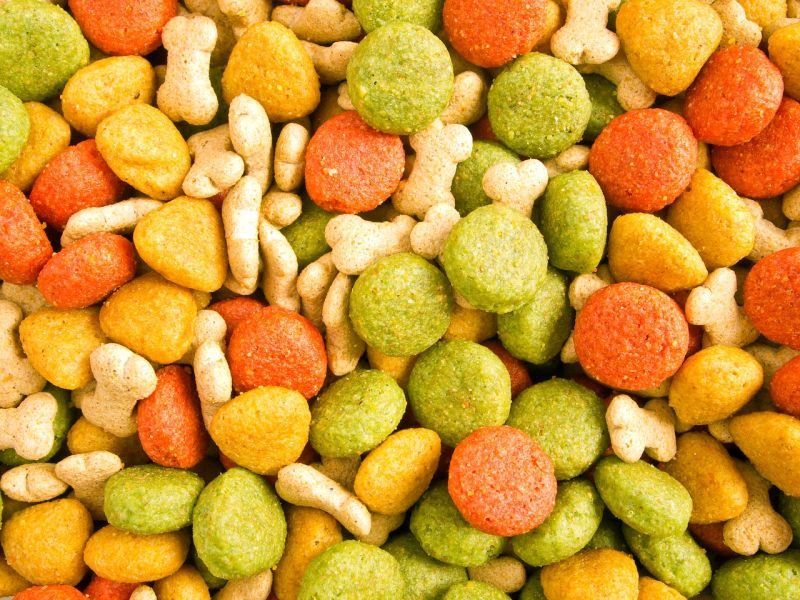
One of the most interesting (and alarming) things some veterinarians have noticed is that some cases of DCM appear to be correlated with certain types of pet food.
Initially, vets started noticing DCM seemed to be more common in dogs that were fed grain-free diets, which used things like legumes and potatoes rather than wheat.
However, over time, vets began noticing other types of diets were also associated with cases of DCM.
In total, these problematic diets include:
- Grain-free diets that rely on legumes, chickpeas, and others more unusual carbohydrate sources.
- “Boutique” pet food brands that come from smaller manufacturers,
- Foods made with exotic ingredients (such as kangaroo or bison).
This has led some veterinarians to adopt the catch-all term “BEG” diets – which stands for “boutique, exotic, and grain-free” — when discussing these foods.
Homemade diets, raw foods, and vegan-based diets have also been correlated with the condition in recent years.
But once again, it is important to note that this is a complex issue which vets don’t completely understand yet.
Lisa M. Freeman, DVM, Ph.D., DACVN with Cummings Veterinary Medical Center at Tufts University, suggests that the disease appears to occur in three different ways:
- Diet-associated DCM in dogs who exhibit normal taurine levels. This includes dogs fed BEG diets who may or may not be members of breeds that are normally susceptible to hereditary DCM.
- Primary DCM that is unrelated to diet. This group is primarily comprised of breeds that are known to be susceptible to inherited DCM (scroll down to see a list of the breeds most commonly affected).
- Diet-associated DCM with low taurine levels. This appears to be the rarest of the three forms. It occurs in dogs who are eating BEG diets and may or may not be members of a breed normally predisposed to DCM.
Which Dog Breeds Are Susceptible to DCM?
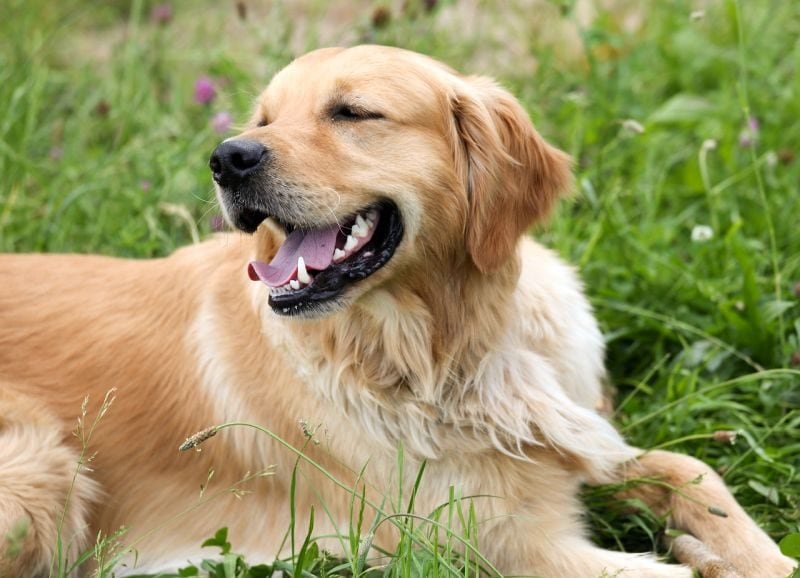
It is likely that any dog breed can suffer from DCM. However, DCM is most commonly seen in the following breeds:
- Doberman pinschers
- Great Danes
- Boxers
- Cocker spaniels
These breeds have long been known to be susceptible to DCM. But in recent years, a few other breeds seem to be suffering from DCM with increasing frequency, including most notably, golden retrievers.
Symptoms of DCM in Dogs
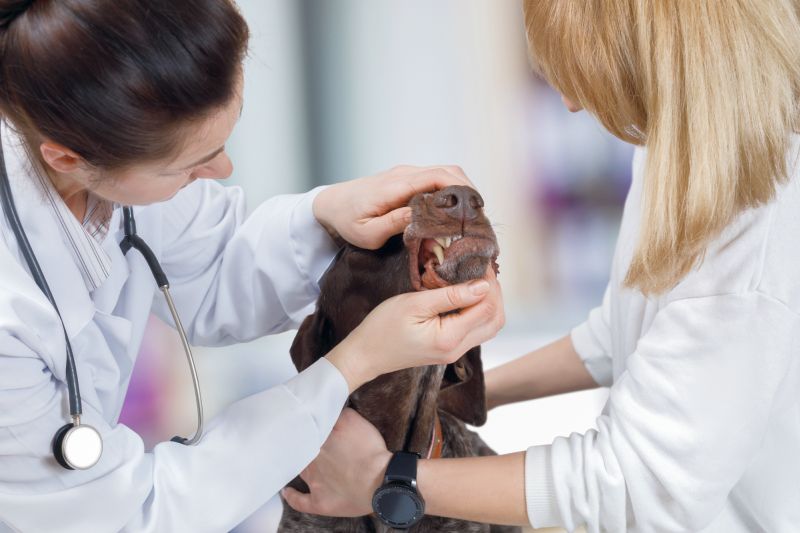
The primary symptom associated with DCM is the dilation (expansion) of a dog’s heart ventricles (two of the chambers responsible for pumping blood). It also causes a thinning of the ventricle walls.
In some dogs, the atria (the other two chambers of the heart) may also dilate.
But you obviously can’t see these types of things happening. Instead, you’ll just need to take your pooch to the vet if you notice any of the signs and symptoms DCM often causes. These include:
- Loss of appetite
- Pale gums
- Rapid heart rate
- Coughing or difficulty breathing
- Fainting
- General weakness or lethargy
It is important to note that DCM doesn’t always cause obvious symptoms. In fact, it can (rarely) cause sudden, unexpected death.
What Are the Symptoms of Taurine Deficiency in Dogs?

Because taurine deficiency may or may not occur alongside DCM, it is important to familiarize yourself with some of the key symptoms it causes.
Unfortunately, it often fails to trigger any obvious signs of illness, but there are a few symptoms that you may notice:
- Pain during urination
- Blood in the urine
- Abdominal pain
- Lethargy
- Panting not associated with exercise
- Collapse or fainting
Dog Breeds Often Affected by Taurine Deficiency

A few dog breeds seem to have a genetic predisposition for developing taurine deficiencies. These dogs may need to consume a pet food with plenty of taurine or take supplements to prevent DCM from developing.
However, it is important to reiterate that most dogs with DCM do not have low taurine levels.
A few of the breeds who suffer from taurine deficiency most commonly include:
- Cocker Spaniel
- Golden retriever
- Labrador retriever
- English setter
- Saint Bernard
- Newfoundland
Some dog foods – such as lamb and rice recipes, grain-free diets, low protein pet food recipes, and high fiber recipes – can make it more likely for members of these breeds to develop taurine deficiencies. Accordingly, these foods should be avoided.
Will Taurine Supplements Prevent or Treat Dog DCM?
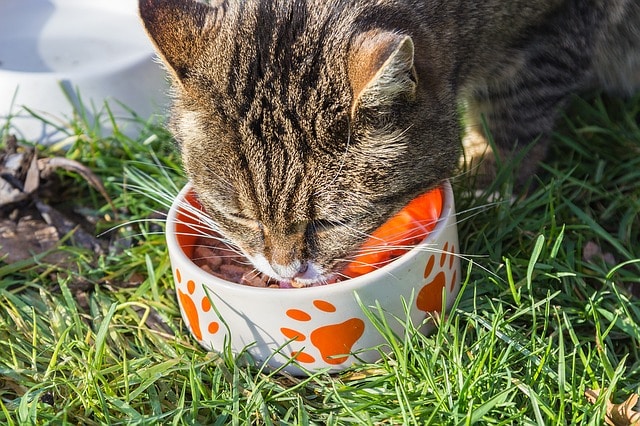
Way back in the 80s, researchers learned that cats – unlike dogs – are not able to make their own taurine.
This caused many cats to develop diet-associated DCM over time. But, once this new information became common knowledge, cat food manufacturers began fortifying their recipes with taurine.
Turns out, this worked really well. Cats don’t suffer from diet-associated DCM very often anymore. But, as discussed earlier, the relationship between taurine and DCM is not so simple in dogs.
Taurine supplementation has been shown to be effective at treating DCM in some cases. But it isn’t always effective, and it is more likely to help dogs who exhibit low blood taurine levels than those who are suffering DCM yet maintain normal taurine levels.
Some pet food manufacturers have already begun supplementing their foods with taurine. You can also purchase taurine supplements in pill or liquid form.
But the problem is, the AAFCO has yet to establish guidelines for the ideal levels of taurine, so it isn’t yet clear what the ideal taurine dosage for dogs is.
In fact, no one yet understands exactly how much taurine should be in dog foods. The amino acid is largely considered safe for pets, but haphazard supplementation is rarely a good idea.
What Are Some Ingredients and Foods with Taurine?
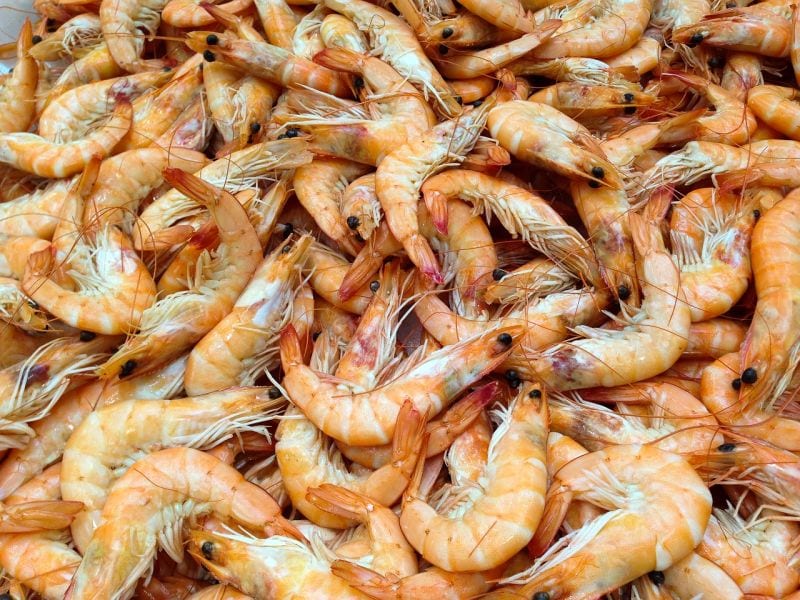
Taurine isn’t a rare amino acid — it is a pretty common component of animal protein. In fact, there are a number of ingredients and foods that are good sources of taurine. Some of the best sources of taurine include:
- Shellfish (especially scallops, mussels, and clams)
- Turkey (dark meat)
- Chicken (dark meat)
- Whitefish
- Cod
- Beef
Unfortunately, shellfish aren’t normally incorporated into dog foods, but beef, whitefish, and poultry are common ingredients.
The Takeaway: What’s an Owner to Do About the DCM/Taurine Issue?

If you’ve read this far, you’re probably feeling pretty confused and frustrated. Those are both perfectly valid emotions, and, if you’ll remember, we did warn you at the outset that this is a murky, poorly understood issue.
So, we’d recommend that owners do the following to help keep their dog healthy and happy:
Work Closely with Your Vet
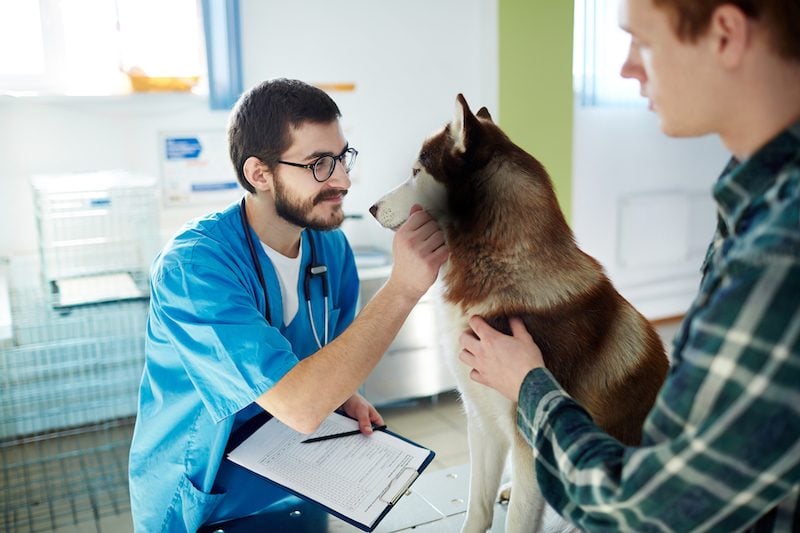
If you’re a regular K9 of Mine reader, you probably already know that we bang the veterinary drum constantly.
Simply put, developing a good relationship with your vet and visiting frequently is the single most important thing you can do to keep your pet healthy.
So, take your pup in for regular visits, make sure your vet keeps a close eye on your pet’s heart (particularly if he is a member of a DCM-susceptible breed), and discuss your pet’s diet with him or her too.
Stick to High-Quality, Mainstream Dog Foods Whenever Possible

There are a lot of very appealing boutique dog food manufacturers in the market these days. Many produce very high-quality foods, and they often incorporate some very attractive features.
But small dog food manufacturers don’t always have nutritionists on staff, and they can rarely afford to carry out the kind of laboratory testing that larger manufacturers can.
Additionally, because these types of foods have been associated with DCM, it just makes sense to avoid boutique dog food manufacturers until the relationship between DCM and these foods becomes clearer.
That said, some dogs have unique requirements that necessitate the use of these types of foods. Your dog may, for example, have allergies to several common proteins or have higher-than-normal fiber requirements.
So, try to pick a food made by a mainstream pet food manufacturer. And if your dog truly needs a boutique diet, be sure to discuss your choice with your vet.
Avoid Grain-Free Products Unless They’re Truly Necessary
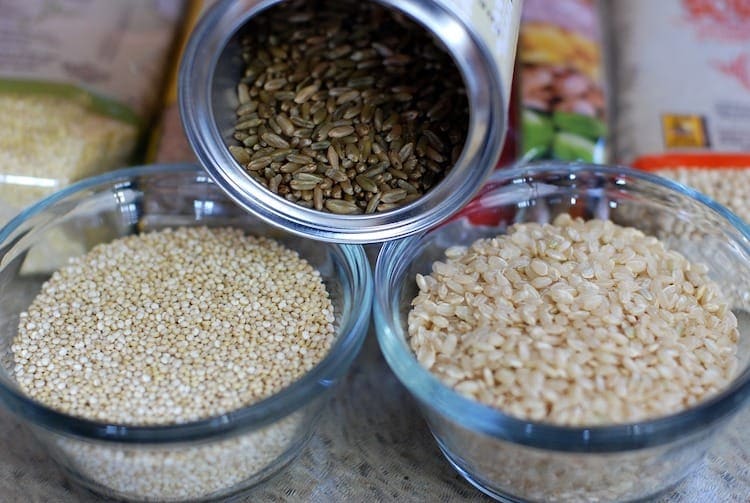
Grain-free diets are very trendy these days. And while it is understandable that dog owners want to give their dog the best possible diet, grain-free diets are rarely necessary.
Point blank: Unless your dog has a specific intolerance to grains (which is a relatively rare phenomenon), there is no reason to avoid them.
Grains serve as a fabulous and healthy source of carbohydrates, and contrary to popular perception, dogs digest cooked grains without issue.
Sure, some grains are better than others, and we generally encourage owners to look for foods made with whole, rather than refined grains. But even this isn’t truly necessary if the food is nutritionally balanced and made with high-quality ingredients.
Given this, and the fact that grain-free products have been linked with DCM (although a causal relationship has not been established), it is simply wise to avoid grain-free dog foods unless your dog has a specific need for them. Opt for non-grain-free dog foods instead!
Best Dog Foods with Taurine
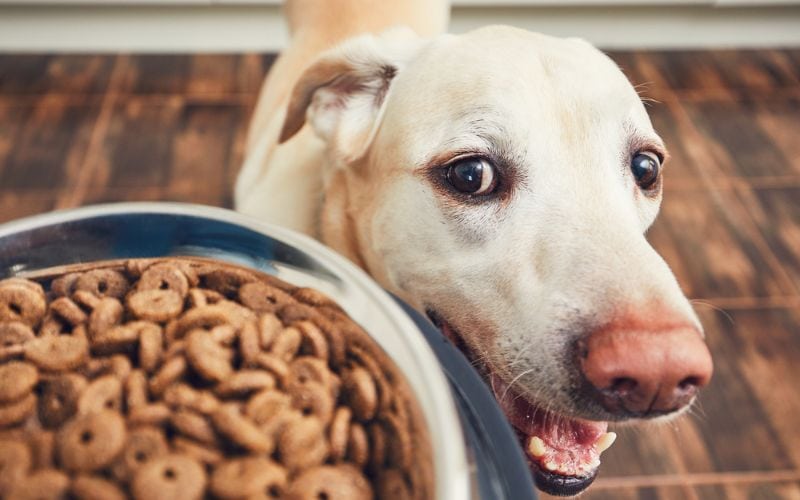
There are a few dog food manufacturers who add supplemental taurine (along with natural sources of taurine) to their recipes. We still recommend discussing your food choice with your vet, but these foods may be helpful for preventing some cases of DCM.
Unfortunately, most of the foods that feature supplemental taurine are of the grain-free variety. This presents a pretty tricky choice, as grain-free diets have been associated with DCM.
This further highlights the importance of speaking with your vet about your pup’s heart health and dietary needs.
1. Blue Buffalo Life Protection Formula
Extras like antioxidant-rich LifeSource Bits and belly-supporting probiotics make this a quality choice for a few more doggy dollars.
About: Blue Buffalo Life Protection comes from a high-quality dog food manufacturer, who makes a variety of different recipes for dogs. Unlike the other two foods we recommend below, many Blue Buffalo recipes do contain healthy grains.
Features: Blue Buffalo Life Protection satisfies most of the criteria we look for in a dog food. It features nutritious proteins at the top of the ingredient list (deboned chicken and chicken meal), it contains healthy, whole grains (including brown rice), and it is made in the USA. Blue Buffalo is also a relatively large manufacturer, and their recipes are formulated to comply with the AAFCO’s guidelines.
Blue Buffalo Life Protection also includes a couple of valuable “extras.” This includes a variety of antioxidant-rich fruits and vegetables, five supplemental probiotic strains, and glucosamine (which helps support joint health).
Ingredients List
Deboned Chicken, Chicken Meal, Brown Rice, Barley, Oatmeal...,
Pea Starch, Flaxseed (source of Omega 3 and 6 Fatty Acids), Chicken Fat (preserved with Mixed Tocopherols), Dried Tomato Pomace, Natural Flavor, Peas, Pea Protein, Salt, Potassium Chloride, Dehydrated Alfalfa Meal, Potatoes, Dried Chicory Root, Pea Fiber, Alfalfa Nutrient Concentrate, Calcium Carbonate, Choline Chloride, DL-Methionine, Preserved with Mixed Tocopherols, Dicalcium Phosphate, Sweet Potatoes, Carrots, Garlic, Zinc Amino Acid Chelate, Zinc Sulfate, Vegetable Juice for color, Ferrous Sulfate, Vitamin E Supplement, Iron Amino Acid Chelate, Blueberries, Cranberries, Barley Grass, Parsley, Turmeric, Dried Kelp, Yucca Schidigera Extract, Niacin (Vitamin B3), Glucosamine Hydrochloride, Calcium Pantothenate (Vitamin B5), Copper Sulfate, Biotin (Vitamin B7), L-Ascorbyl-2-Polyphosphate (source of Vitamin C), L-Lysine, L-Carnitine, Vitamin A Supplement, Copper Amino Acid Chelate, Manganese Sulfate, Taurine, Manganese Amino Acid Chelate, Thiamine Mononitrate (Vitamin B1), Riboflavin (Vitamin B2), Vitamin D3 Supplement, Vitamin B12 Supplement, Pyridoxine Hydrochloride (Vitamin B6), Calcium Iodate, Dried Yeast, Dried Enterococcus faecium fermentation product, Dried Lactobacillus acidophilus fermentation product, Dried Aspergillus niger fermentation extract, Dried Trichoderma longibrachiatum fermentation extract, Dried Bacillus subtilis fermentation extract, Folic Acid (Vitamin B9), Sodium Selenite, Oil of Rosemary.
Pros
- Contains supplemental taurine
- May also offer digestive benefits, thanks to the included probiotics
- Made with tons of antioxidant-rich produce
Cons
- Though tasty to dogs and nutritious, chicken meal grosses some owners out
- Some dogs don’t like the included LifeSource Bits
2. Fromm Four-Star Game Bird Recipe
A poultry-based, high-quality dry food containing taurine, omega-3s, and antioxidants for nose-to-tail health.
About: Fromm Four-Star Game Bird Recipe comes from a boutique dog-food manufacturer that produces a number of grain-free recipes. However, they do feature supplemental taurine, and there are a lot of other attractive things about the food.
Features: Fromm starts their ingredient list with high-quality proteins (turkey and duck meal), and several other proteins appear further down the list. Additionally, it contains omega-3-rich salmon oil to help protect your pup’s joints and reduce inflammation, as well as antioxidant-rich ingredients like carrots and broccoli.
Fromm is made in the USA, and it is one of the only foods we’re aware of that contains cheese. Most dogs absolutely love the way cheese tastes (just note that some dogs may experience bloating or flatulence after consuming dairy products).
Ingredients List
Turkey, Duck Meal, Turkey Broth, Lentils, Chickpeas...,
Peas, Potatoes, Turkey Liver, Chicken Meal, Pea Flour, Dried Tomato Pomace, Chicken Fat, Dried Egg Product, Pea Protein, Salmon Oil, Goose, Chicken, Sweet Potatoes, Flaxseed, Cheese, Pheasant, Quail, Duck, Pumpkin, Carrots, Apples, Broccoli, Natural Flavor, Potassium Chloride, Salt, Monosodium Phosphate, Chicory Root Extract, Vitamins, Minerals, Cranberries, Yucca Schidigera Extract, Sorbic Acid (Preservative), Blueberries, Sodium Selenite, Taurine, Probiotics.
Pros
- Dogs usually love-love-love the taste
- Made with a litany of impressive ingredients
- Includes supplemental taurine
Cons
- Fromm is pricey
- Grain-free and made by an (arguably) boutique manufacturer
3. Taste of the Wild
About: Taste of the Wild High Prairie is a protein-packed dog food that is designed to mimic the diet of wild canines with a mix of delicious meats. It is, unfortunately, grain-free and (arguably) a boutique brand, but it does feature supplemental taurine.
Features: Taste of the Wild contains a ton of different protein sources. The ingredient list starts with buffalo, lamb meal, and chicken meal, and things like roasted bison, venison, and beef occur farther down the list.
Instead of grains, Taste of the Wild relies on sweet potatoes, peas, and potatoes to provide the bulk of the recipe’s carbohydrate content. Tomatoes, blueberries, and raspberries are included to provide vitamins, minerals, and antioxidants. Five different probiotic supplements are included in the recipe, and it is supplemented with taurine.
Taste of the Wild is manufactured in the USA.
Ingredients List
Buffalo, lamb meal, chicken meal, sweet potatoes, peas...,
potatoes, chicken fat (preserved with mixed tocopherols), egg product, roasted bison, roasted venison, beef, natural flavor, tomato pomace, potato protein, pea protein, ocean fish meal, salt, choline chloride, taurine, dried chicory root, tomatoes, blueberries, raspberries, Yucca schidigera extract, dried Lactobacillus plantarum fermentation product, dried Bacillus subtilis fermentation product, dried Lactobacillus acidophilus fermentation product, dried Enterococcus faecium fermentation product, dried Bifidobacterium animalis fermentation product, vitamin E supplement, iron proteinate, zinc proteinate, copper proteinate, ferrous sulfate, zinc sulfate, copper sulfate, potassium iodide, thiamine mononitrate (vitamin B1), manganese proteinate, manganous oxide, ascorbic acid, vitamin A supplement, biotin, niacin, calcium pantothenate, manganese sulfate, sodium selenite, pyridoxine hydrochloride (vitamin B6), vitamin B12 supplement, riboflavin (vitamin B2), vitamin D supplement, folic acid.
Pros
- Absolutely packed with protein
- The included probiotics may help prevent intestinal issues
- Features supplemental taurine
Cons
- It’s grain-free
- The mixed protein nature of the food makes it a poor choice for dogs with food allergies
Dog Taurine Deficiency and DCM FAQs
Given the complexity surrounding the issue of taurine and DCM in dogs, it’s not surprising that many owners have questions about the amino acid and heart disease in dogs. We’ll try to answer a few of the most common questions below.
How much taurine should be in dog food?
Unfortunately, there isn’t a clear standard for the ideal amount of taurine in dog foods yet. Hopefully, the AAFCO will establish recommendations for the amino acid in the near future.
How long can a dog live with DCM?
DCM is treatable – especially when caught early. It can definitely shorten the life expectancy of some dogs, but with proper management and veterinary assistance, your pup may still live a long, relatively problem-free life.
What’s the connection between grain-free food and cardiomyopathy?
The exact link between grain-free foods and heart disease has not been determined. All researchers know is that some dogs who are not from breeds typically susceptible to DCM that eat grain-free diets begin suffering from the disease.
Are there any taurine deficiency prevention strategies?
Most dogs make taurine internally, but if you want to err on the side of caution, you can select a food that includes supplemental taurine. Unfortunately, nobody yet knows how much taurine you should provide your dog, but selecting a food with taurine-rich ingredients (or supplements) may help your dog avoid DCM.
Is it wise to select a grain-free food with taurine?
As mentioned earlier, grain-free foods are probably only a good idea for dogs who have a specific need for them. In such cases, it is probably wise to select a grain-free food that is fortified with additional taurine.
Do you need to worry about taurine overdose in dogs?
Taurine is largely considered safe, and you probably don’t need to worry about the amounts included in your dog’s food. However, if your vet recommends administering a taurine supplement to your pooch, just be sure to follow the dosage instructions carefully.
As you can see, the taurine-DCM issue is complicated, and vets don’t yet have clear answers for owners. Accordingly, we’ll reiterate the importance of working with your vet when selecting a food for your pet.
Has your dog been diagnosed with DCM? We’d love to hear about your experiences. What kind of food have you been feeding? Has your vet recommended making a switch? Let us know in the comments below.

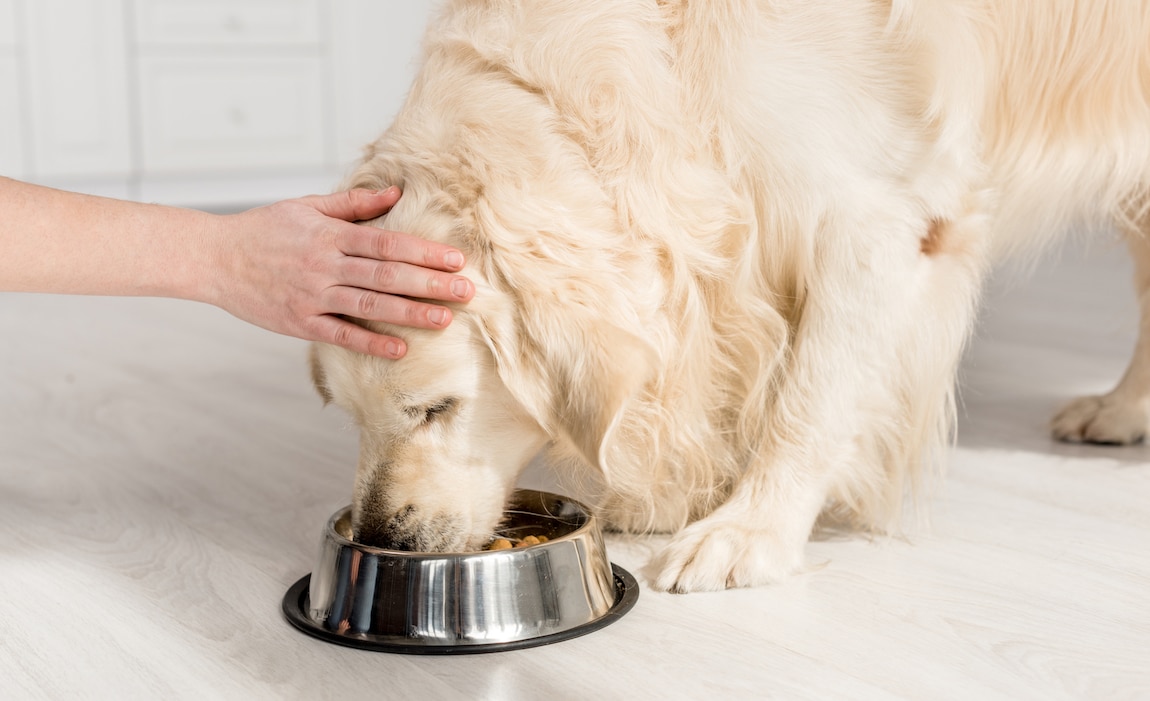

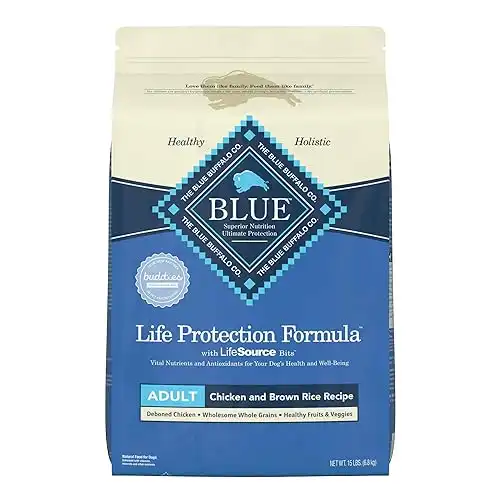
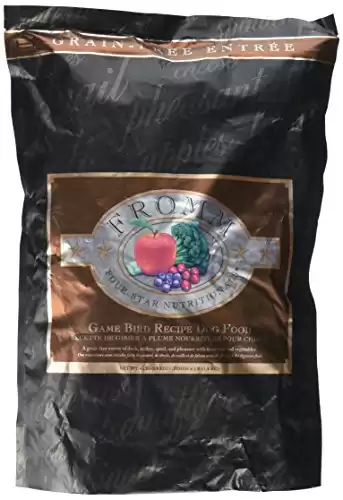
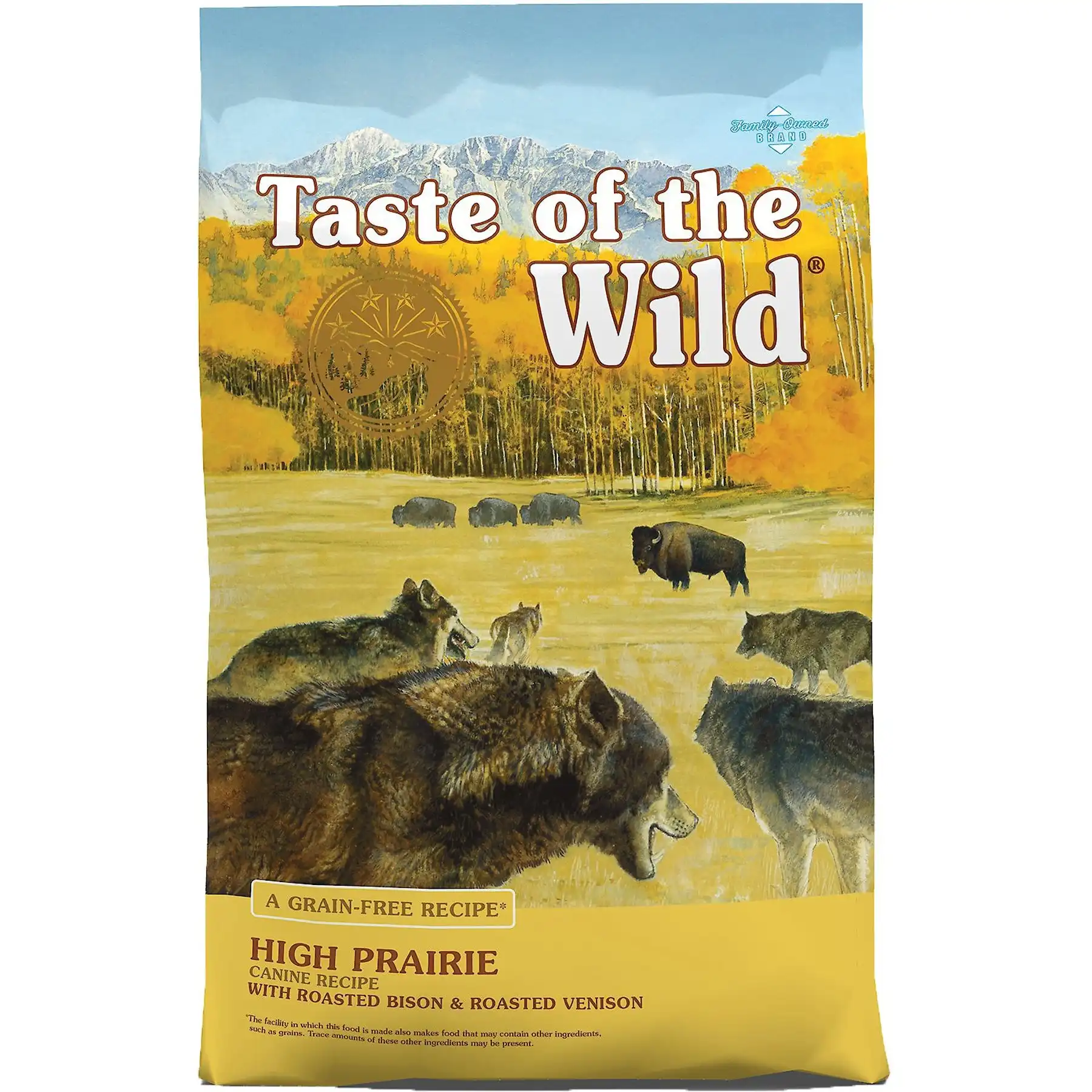



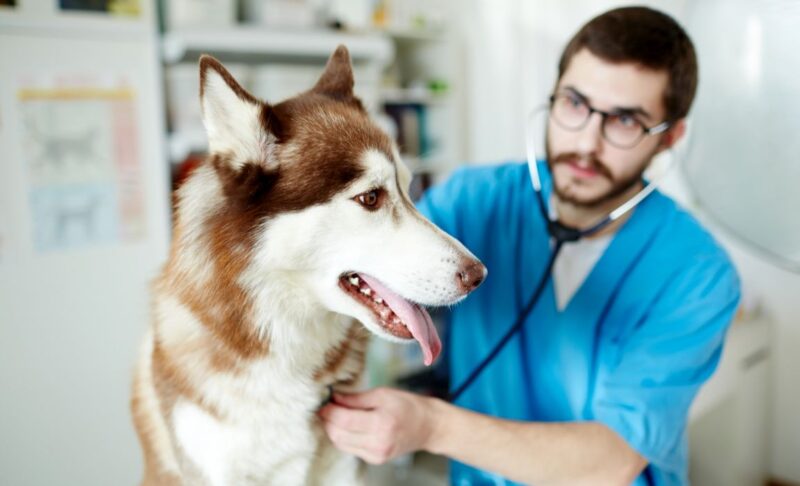
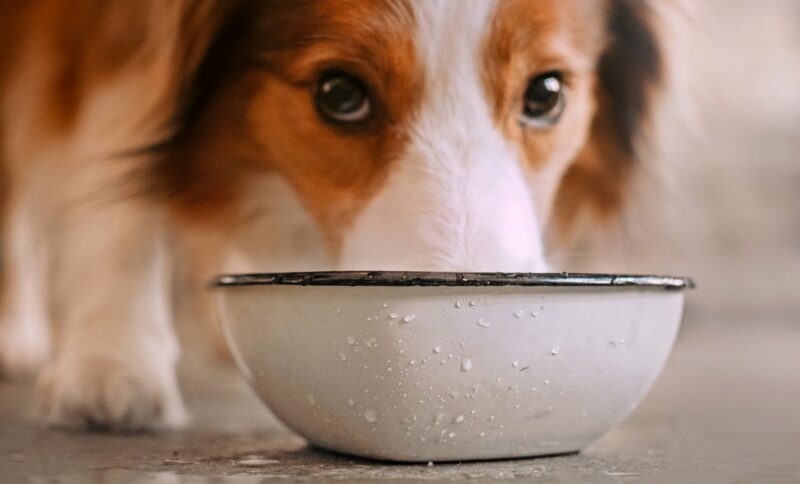

Leave a Comment